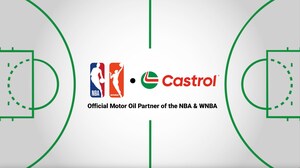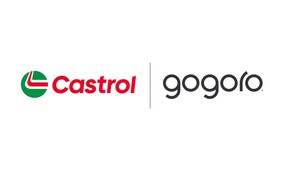New Castrol® Study Reveals 'Tipping Points' To Drive Mainstream Electric Vehicle Adoption In The US
Drivers in the US looking for EVs priced at $36,000 with 30-minute average charge time and a range of 319 miles
- New study reveals the 'tipping points' at which most US drivers would consider making the switch to an EV.
- According to an economic model developed as part of the research, the annual market for EVs in the US could be worth $108 billion by 2025 if all three tipping points are met.
- Consumers in the US expect EVs to travel further between charges than consumers from any other market in the study.
WAYNE, N.J., Aug. 25, 2020 /PRNewswire/ -- A major new study released by Castrol draws on the views of consumers, fleet managers and automotive industry leaders from across the US to reveal the factors driving electric vehicle (EV) buying decisions.
Accelerating the EVolution reveals that, on average for US consumers, a price point of $36,000, a charge time of 30 minutes and a range of 319 miles from a single charge represent the 'tipping points' to achieve mainstream EV adoption. The research also estimates that the annual US electric vehicle market could be worth $108 billion by 20251 if all three tipping points are met, pointing to a possible EV-powered low-carbon recovery for the automotive industry.
David Bouet, President BP Lubricants, said:
"The global automotive industry has been impacted hugely by the coronavirus pandemic, and the US industry is no different. As we look forward to the road to recovery, I believe that electric vehicles have a key role to play. Castrol's research shows that there is an appetite amongst consumers to make the switch to electric. Vehicle manufacturers have an opportunity to do more to translate this into buying decisions, especially at a time when consumer behavior is bound to be more cautious. Accelerating the EVolution provides a clear roadmap for the industry to help accelerate mainstream adoption of EVs."
Based on research from eight of the world's most important electric vehicle markets, Castrol's study examines five critical challenges that should be addressed to promote further growth in the EV market - highlighting the differing priorities for consumers and fleet managers.
Key findings from the opinion research, which was conducted December 2019 to January 2020, include:
2025 - the year of the EV?
On average, drivers in the US said they would consider purchasing an EV by 2025. However, nearly 60% of US drivers said they are adopting a "wait and see" approach. Fifty nine percent of fleet managers said they are waiting for competitors to make the switch before they do.
Price is front-of-mind
While $36,000 was the tipping point for consumers in the US and the global average, there is a striking difference between markets. Consumers in Japan are prepared to pay the most for an EV at an average of $43,000, while consumers in the UK are more price sensitive at $30,000.
Price is the number one priority for consumers in the US, with 57% of those surveyed saying that EVs are currently beyond their budget. The study also finds that misconceptions about maintenance costs could be stopping consumers making the switch: 65% of US consumers say that these costs were preventing them from buying a fully electric car. This suggests that many are unaware that the overall average cost of ownership of an EV over its lifetime tends to be lower than for vehicles with internal combustion engines2.
Demand for shorter charge time
Charge time was identified as the second most important challenge to the mainstream adoption of EVs; consumers in the US said they require an average charge time of 30 minutes or less before they would consider purchasing an EV. Over two-thirds of those questioned (67%) believe EVs will only dominate on the roads once they can charge in a similar amount of time as it takes to refuel an internal combustion engine vehicle.
'Range anxiety' is real
Range was ranked third on the priority list, with three in five US drivers agreeing it is a significant barrier to the mainstream adoption of EVs. On average, consumers in the US expect a range of 319 miles on a single charge, approximately equivalent to the distance from Boston to Philadelphia, and notably higher than the global average of 291 miles. However, 66% of consumers in the US mainly use their car for commuting or short journeys, suggesting that 'range anxiety' may be partly driving this preference.
Mandhir Singh, chief executive officer at Castrol said:
"The automotive industry has already demonstrated what it can achieve in response to the coronavirus crisis, turning its capabilities to producing much needed medical equipment. With EV technology constantly improving the challenge now will be to drive a low-carbon recovery and accelerate the EVolution as quickly as possible. Castrol has been working with the automotive industry to develop unique e-Fluid technology to support EVs, from battery coolant e-fluid, e-greases and transmission fluids."
"Bringing down the cost and charge time for electric vehicles while increasing range, infrastructure and vehicle choice will be critical to persuading consumers to make the switch to EVs."
The Accelerating the EVolution report, which includes a full breakdown of the research and detailed findings, is available to download here: www.castrol.com/EV.
Notes to editors:
Accelerating the EVolution: Tipping points to mainstream electric vehicle adoption examines five critical challenges that must be overcome to accelerate the pace of EV adoption. Exploring the views of nearly 10,000 consumers, fleet managers and industry specialists across eight of the world's most important EV markets, our study reveals the electric vehicle 'tipping points' – the price, charge time and range that need to be achieved for electric vehicles to become mainstream. Opinion research was conducted December 2019 to January 2020.
To download the full Accelerating the EVolution report and infographic visit: www.castrol.com/EV
For further information please contact:
For media enquiries contact Kerry Cheney [[email protected]]. For technical enquiries contact: [email protected]
About Castrol:
Castrol provides the oils, fluids and lubricants the world needs, for every driver, every rider and every industry. It's more than just oil. It's liquid engineering.
The world of transport is going electric and e-fluids have a vital role to play. EVs play a key part in the mobility revolution and the pathway to decarbonizing transport. Castrol's e-Fluid expertise extends across land, sea and even space.
- In space, Castrol e-Greases help keep NASA's $820 million InSight Mars Lander working in the unforgiving conditions on the Red Planet.
- At sea, Castrol e-Fluids support equipment used in the transfer of power from an engine or electric motor to a propeller or thruster.
- On land, Castrol has developed a range of e-fluids to meet the needs of vehicle manufacturers. From transmission e-fluids, which are inside many EVs already on the road, to e-Greases and e-Coolants, these fluids enable electric vehicles to run smoothly, efficiently and stay cool.
Developments include Castrol's lowest viscosity e-transmission oil, designed for efficiency, durability and reliability. Castrol is partnering with major manufacturers to ensure its lubricants deliver what drivers want: to go further on a single charge, enable longer life of transmission and component parts, and ensure long-lasting battery health.
As EVs continue to evolve, Castrol's best brains are not only defining the fluids, but the way the fluids are defined: pioneering unique testing and monitoring methods, driving efficiency and economy going beyond the standard requirements of the fluids, taking consumer insights and engineering technical solutions; advancing technologies that will lead to breakthroughs for the transport of tomorrow.
To find out more about Castrol please visit www.castrol.com
1 According to an economic model developed using historical data before the impacts of the COVID-19 crisis. See p43 of Accelerating the EVolution report for full methodology.
2 According to a recent study the cost associated with using an electric car was found to be up to 27% lower than using a diesel car: https://theicct.org/sites/default/files/publications/EU_vehicle_taxation_Report_20181214_0.pdf
SOURCE Castrol

Related Links
WANT YOUR COMPANY'S NEWS FEATURED ON PRNEWSWIRE.COM?
Newsrooms &
Influencers
Digital Media
Outlets
Journalists
Opted In






Share this article